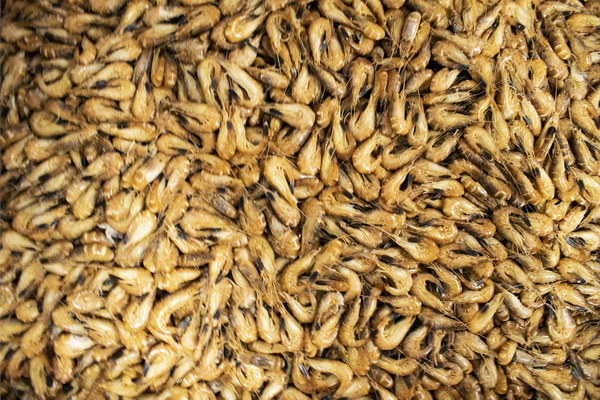The Renal-Boosting Power of Eels Exploring the Traditional Chinese Medicine Perspective
In the vast tapestry of traditional Chinese medicine (TCM), various herbs, foods, and even animals are believed to possess medicinal properties that can treat a range of ailments. One such animal that has garnered attention for its supposed renal-boosting powers is the eel. This slippery creature, known as the yellow eel (Huangshan) in Chinese, has been a subject of debate among both TCM practitioners and modern scientists. Let's delve into the world of eels and their potential benefits for kidney health.
Historical Context
The concept of using eels as a medicinal food dates back to ancient China. According to TCM, eels possess properties that can nourish the kidneys and improve overall health. The Compendium of Materia Medica, a foundational text in TCM, lists eels as a kidney-nourishing food that can help with issues such as nocturnal enuresis, a condition characterized by nighttime bedwetting. Eels are also believed to have a cooling effect on the body, which can be beneficial for those suffering from heat-related conditions like fever and inflammation.
Modern Research
While the traditional beliefs about eels and kidney health are intriguing, modern research has yet to fully confirm their efficacy. Some studies suggest that certain compounds found in eels, such as eel collagen and omega-3 fatty acids, may have potential health benefits. However, more research is needed to establish a definitive link between eels and improved renal health.
One study published in the Journal of Ethnopharmacology investigated the effects of eel extracts on renal function in rats. The findings showed that eel extracts improved renal function and protected the kidneys from oxidative stress. While these results are promising, it's essential to note that they were obtained in a laboratory setting and may not directly translate to human benefits.
Nutritional Value
Eels are a rich source of various nutrients, including protein, vitamin A, vitamin D, and omega-3 fatty acids. These nutrients can contribute to overall health, including kidney function. For instance, protein is essential for maintaining kidney health and preventing the progression of chronic kidney disease.
However, it's important to consume eels in moderation due to their high levels of cholesterol and sodium. For those with kidney issues, it's advisable to consult with a healthcare professional before incorporating eels into their diet.

Culinary Uses
In Chinese cuisine, eels are often prepared in a variety of dishes, such as braised eel, eel soup, and eel in rice. These dishes are believed to enhance kidney health and are particularly popular during the winter months, when the body is more susceptible to cold and flu.
Conclusion
While the traditional belief in eels' renal-boosting properties is strong, modern scientific research is still inconclusive. While eels do offer a variety of nutritional benefits, more research is needed to determine their direct impact on kidney health. If you're considering adding eels to your diet for their supposed renal benefits, it's best to do so under the guidance of a healthcare professional. As with any dietary change, it's essential to prioritize a balanced and varied diet that meets your specific nutritional needs.









